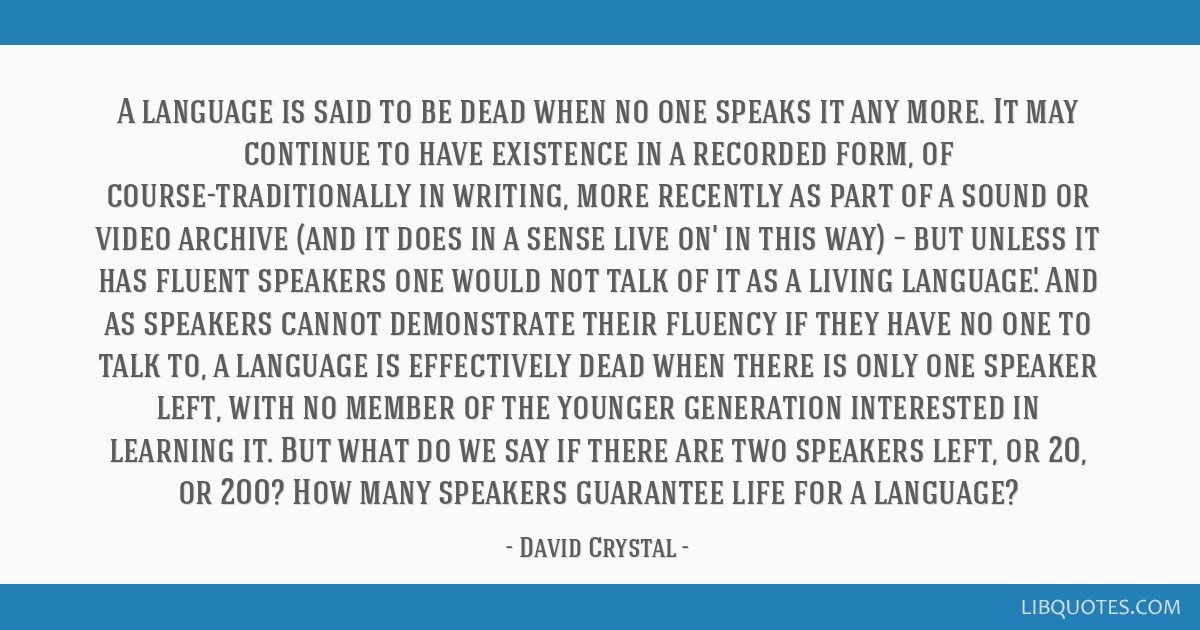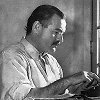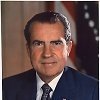A language is said to be dead when no one speaks it any more. It may continue to have existence in a recorded form, of course-traditionally in writing, more recently as part of a sound or video archive (and it does in a sense live on' in this way) – but unless it has fluent speakers one would not talk of it as a living language'. And as speakers cannot demonstrate their fluency if they have no one to talk to, a language is effectively dead when there is only one speaker left, with no member of the younger generation interested in learning it. But what do we say if there are two speakers left, or 20, or 200? How many speakers guarantee life for a language?
p. 11 - How Language Works, 2007























